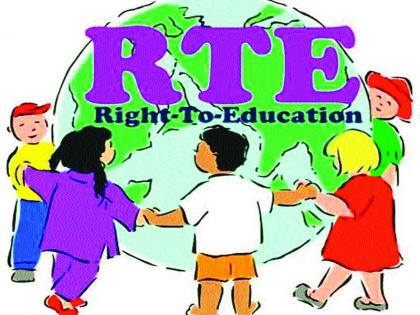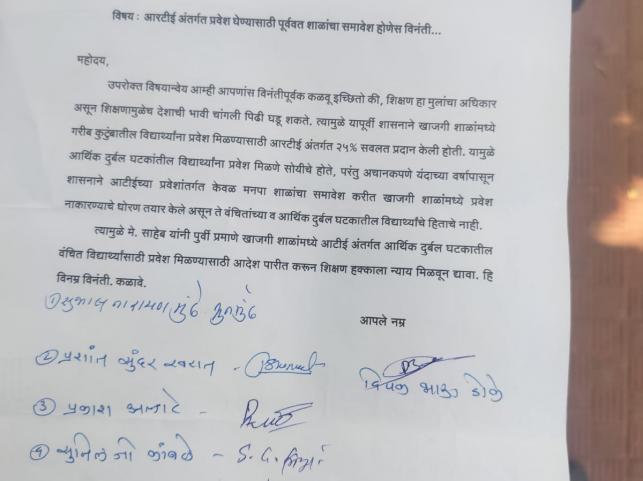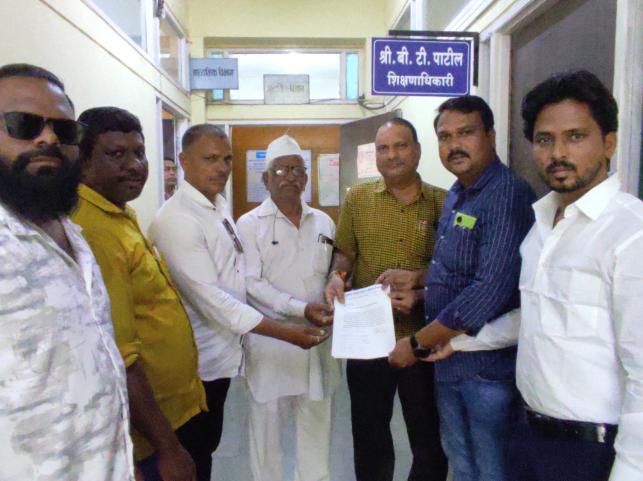Nashik's RTE Applications Plummet: 2024 Sees Drop to 4,127 from 22,122 in 2023
By Chitra | Published: April 30, 2024 03:47 PM2024-04-30T15:47:49+5:302024-04-30T15:49:31+5:30
In Nashik district, the Right to Education (RTE) landscape mirrors a concerning trend seen across Maharashtra. Only 4,127 online ...

Nashik's RTE Applications Plummet: 2024 Sees Drop to 4,127 from 22,122 in 2023
In Nashik district, the Right to Education (RTE) landscape mirrors a concerning trend seen across Maharashtra. Only 4,127 online applications have been received this year, a significant decrease from the 22,122 applications received in 2023. This decline is particularly alarming given the 53,404 available seats spread across 4,014 schools in the district.
The decrease in application numbers underscores a growing apathy among parents towards the RTE admission process. This shift in sentiment can be largely attributed to the implementation of a new regulation mandating the selection of Government, aided, or local body-run schools within a one-kilometer radius of the applicant's residence. Consequently, students are deprived of the option to choose self-financing schools under such circumstances.
The RTE framework is particularly pivotal for economically disadvantaged families and students who lack the means to afford private school education. However, the government's directive to exclude private schools from the RTE eligibility criteria has evidently dampened the enthusiasm for RTE admissions this year.
Expressing their dissatisfaction, some parents have lodged formal complaints with the education officer at the Nashik Municipal Corporation. The schools with CBSE and ICSE board which are self-financed are ticked out of the RTE schools list, which raises the serious question about the main motto of RTE admission process. They contend that the government's decision to bar private schools from the RTE framework amounts to an injustice against students. The RTE scheme is designed to provide a 25% discount on fees for economically backward students. Denying them admission to private schools would compel them to seek loans to finance their education, imposing a financial burden.
One parent opined, "If the government expects our children to enroll in government schools, they must first enhance the quality of education provided therein. The entire education system warrants a comprehensive reassessment before such expectations can be reasonably entertained. Presently, owing to this new regulation, we find ourselves shouldering the additional burden of securing admissions in private schools."
Deepak Doke, Founder President of Gunaratna Arogya Madat Ani Kaushalya Vikas Kendra said that he will file and PIL for the issue. "Earlier, all schools were open under the Right to Education. However, now the education department of this state government has taken an unfair decision, allowing only the local self-government schools to admit students from poor and underprivileged groups under the right to education. All private schools have been excluded from this. This defeats the original purpose of the scheme. If this is not corrected immediately, we will file a Public Interest Litigation under the leadership of Gunaratna Sadavarte, he added.

